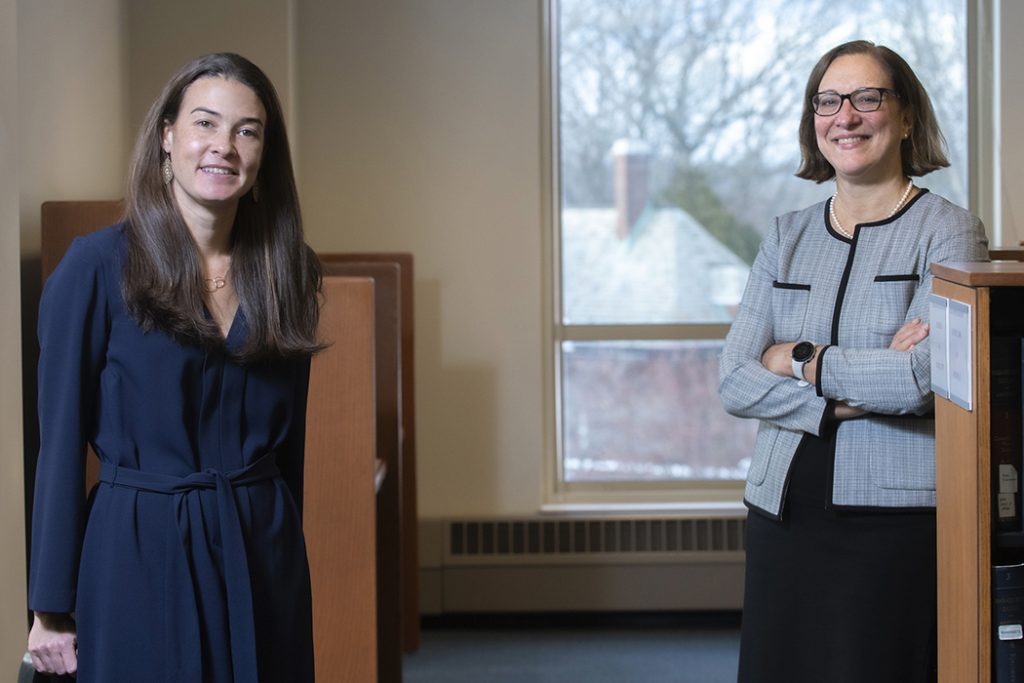A number of Boston College Law School faculty, students, and alumni contributed to the two-plus-years-long effort that resulted in the release on March 25 of a collaborative Massachusetts Bar Association-led guide calling for programs in prosecutorial offices to prevent and remedy wrongful convictions and other miscarriages of justice.
Among the leadership of the MBA’s Massachusetts Conviction Integrity Working Group (MCIWG) that authored the comprehensive guide was Middlesex District Attorney Marian Ryan ’79, who co-chaired the group along with representatives from the Attorney General’s office, the Committee for Public Counsel Services, and the MBA. In a statement, she called its publication “a truly groundbreaking collaboration that brought together stakeholders in this field to create a guide that will serve as an important resource.”
The Boston College Innocence Program also played a key role in the groundbreaking collaboration. BCIP’s director, Professor Sharon Beckman (right), was a member of the working group that developed and wrote the report, “Conviction Integrity Programs: A Guide to Best Practices for Prosecutorial Offices.” BCIP supervising staff attorney Charlotte Whitmore (left), who previously led the Conviction Integrity Unit of the Middlesex County District Attorney’s office, was among the experts who presented to the working group.
Sarah Carlow ’20, now a clinical legal fellow at BCIP, and Pippa Temple ’20, currently a deputy district attorney in San Mateo County, provided extensive research and other support in creating the guide. The late Kevin Curtin ’88 played an instrumental role as a member of the MBA’s Civil Rights and Social Justice Section Counsel in drafting and advocating for the MBA initiative that created the MCIWG.
Civil rights attorney Richard W. Cole, who served as one of the working group’s co-chairs, predicts that “while the guide’s Massachusetts focus reflects the MCIWG members’ knowledge of and experience in the Massachusetts criminal legal system, its core principles and best practice recommendations, supported by extensive scholarship, should serve as an invaluable resource for prosecutorial offices throughout the Unites States committed to criminal justice and conviction integrity.”
More information on the broad coalition of criminal justice stakeholders, their mission, and recommendations can be found on MBA website at www.massbar.org/CIGuide, in Mass Lawyers Weekly, and on WBUR.
Photograph by Lee Pellegrini


